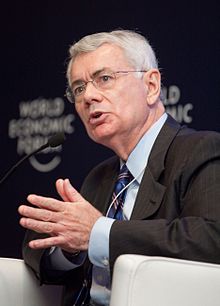
The World Trade Organization (WTO) is an intergovernmental organization that regulates and facilitates international trade. With effective cooperation in the United Nations System, governments use the organization to establish, revise, and enforce the rules that govern international trade. It officially commenced operations on 1 January 1995, pursuant to the 1994 Marrakesh Agreement, thus replacing the General Agreement on Tariffs and Trade (GATT) that had been established in 1948. The WTO is the world's largest international economic organization, with 164 member states representing over 98% of global trade and global GDP.

A trade agreement is a wide-ranging taxes, tariff and trade treaty that often includes investment guarantees. It exists when two or more countries agree on terms that help them trade with each other. The most common trade agreements are of the preferential and free trade types, which are concluded in order to reduce tariffs, quotas and other trade restrictions on items traded between the signatories.
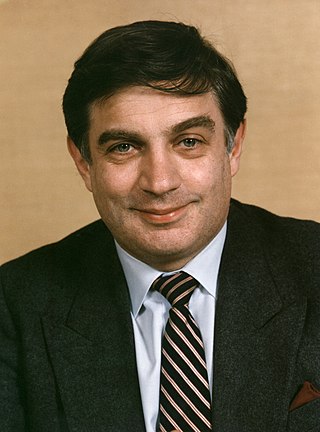
Peter Denis Sutherland was an Irish businessman, barrister and Fine Gael politician who served as UN Special Representative for International Migration from 2006 to 2017. He was known for serving in various international organisations, political and business roles.

Pascal Lamy is a French political consultant and businessman. He was the Director-General of the World Trade Organization (WTO) from 1 September 2005 to 1 September 2013 for 8 years. In April 2009, WTO members reappointed Lamy for a second 4-year term, beginning on 1 September 2009. He was then succeeded by Roberto Azevêdo. Pascal Lamy was also European Commissioner for Trade for 5 years, from 13 September 1999 to 22 November 2004 and is an advisor for the transatlantic think-tank European Horizons, as well as currently serving as the Honorary President of the Paris-based think tank, Notre Europe.
Greenberg Traurig is a multinational law and lobbying firm founded in Miami in 1967 by Larry J. Hoffman, Mel Greenberg and Robert H. Traurig. As of 2022, it is the 9th largest law firm in the United States. The firm has 45 locations in the U.S., Europe and the Middle East, Latin America, and Asia, and approximately 2650 attorneys worldwide.
The Agreement on the Application of Sanitary and Phytosanitary Measures, also known as the SPS Agreement or just SPS, is an international treaty of the World Trade Organization (WTO). It was negotiated during the Uruguay Round of the General Agreement on Tariffs and Trade (GATT), and entered into force with the establishment of the WTO at the beginning of 1995. Broadly, the sanitary and phytosanitary ("SPS") measures covered by the agreement are those aimed at the protection of human, animal or plant life or health from certain risks.
The Appellate Body of the World Trade Organization (WTOAB) is a standing body of seven persons that hears appeals from reports issued by panels in disputes brought on by WTO members. The WTOAB can uphold, modify or reverse the legal findings and conclusions of a panel, and Appellate Body Reports, once adopted by the Dispute Settlement Body (DSB), must be accepted by the parties to the dispute. The WTOAB has its seat in Geneva, Switzerland. It has been termed by at least one journalist as "effectively the supreme court of world trade".

Dr Iftekhar Ahmed Chowdhury is a former Caretaker government advisor in charge of Foreign Affairs (2007-2009).
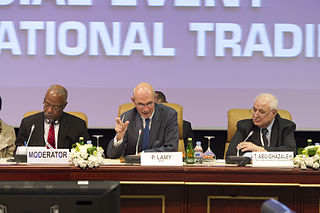
Ransford Smith, CD, is a senior public servant from Jamaica. He was the Deputy Secretary-General for Economic Affairs and Development of the Commonwealth of Nations from 2006 to 2013.
Economic Partnership Agreements (EPAs) are a scheme to create a free trade area (FTA) between the European Union and other countries. They are a response to continuing criticism that the non-reciprocal and discriminating preferential trade agreements offered by the EU are incompatible with WTO rules. The EPAs date back to the signing of the Cotonou Agreement. The EPAs with the different regions are at different states of play. The EU has signed EPAs with the following countries: the Southern African Development Community (SADC), ECOWAS, six countries in Eastern and Southern Africa, Cameroon, four Pacific states, and the CARIFORUM states. Their defining characteristic is that they open up exports to the EU immediately, while exports to the partner regions is opened up only partially and over transitioning periods.
Georges Michel Abi-Saab is an Egyptian lawyer, professor of international law, and an international judge. He is well known for his defense of the interests of Third World countries in and within international law.
Dispute settlement or dispute settlement system (DSS) is regarded by the World Trade Organization (WTO) as the central pillar of the multilateral trading system, and as the organization's "unique contribution to the stability of the global economy". A dispute arises when one member country adopts a trade policy measure or takes some action that one or more fellow members consider to be a breach of WTO agreements or to be a failure to live up to obligations. By joining the WTO, member countries have agreed that if they believe fellow members are in violation of trade rules, they will use the multilateral system of settling disputes instead of taking action unilaterally — this entails abiding by agreed procedures—Dispute Settlement Understanding—and respecting judgments, primarily of the Dispute Settlement Board (DSB), the WTO organ responsible for adjudication of disputes.
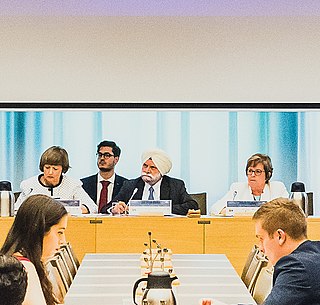
Jennifer Anne Hillman is a professor of practice at Georgetown University Law Center. As of 2016 she was working on trade litigation for Cassidy Kent.

Zoran Jolevski is a Macedonian diplomat and the former Minister of Defense of the Republic of Macedonia. Prior to his appointment as Minister of Defense, he served as Macedonia's Ambassador to the United States of America. In November 2008, he was appointed chief negotiator to the Macedonia naming dispute, and in 2011 he was appointed Ambassador to the United Mexican States and as Permanent Representative to the Organization of American States. He served as Secretary General of the late Macedonian president Boris Trajkovski from 2000–2004. He holds a Ph.D. in International Economy from Ss. Cyril and Methodius University of Skopje. He is married to Suzana Jolevska, and together they have two sons, Pero (1988) and Filip (1992).

Lieutenant Colonel Boniface Guwa Chidyausiku is a Zimbabwean diplomat who served as Zimbabwe's Ambassador to Russia from 2011 to 2015. Chidyausiku participated in the Zimbabwe Liberation War as a member of ZANLA from 1975 to 1980, which led to the attainment of National Independence and multiracial democracy. He was attested and commissioned with the rank of Lt Colonel in the Zimbabwe National Army. He went back to college in 1982 and obtained a BA History [Honours] Degree, and a Master of Science Degree in International Relations from the University of Zimbabwe.
China became a member of the World Trade Organization (WTO) on 11 December 2001, after the agreement of the Ministerial Conference. The admission of China to the WTO was preceded by a lengthy process of negotiations and required significant changes to the Chinese economy. China's membership in the WTO has been contentious, with substantial economic and political effects on other countries, and controversies over the mismatch between the WTO framework and China's economic model. Assessing and enforcing compliance has become issues in China-US trade relations, including how China's noncompliance creates benefits for its own economy.

Stuart Malawer is an international trade lawyer, and distinguished service professor of law at George Mason University's Schar School of Policy and Government. He was a founding faculty member of both the Antonin Scalia Law School and Schar School of Policy and Government at George Mason University.

Roberto Carvalho de Azevêdo is a Brazilian career diplomat who served as Director-General of the World Trade Organization (WTO) from 2013 until 2020. Since 2020, he has been Executive Vice President and Director of Corporate Affairs at PepsiCo.
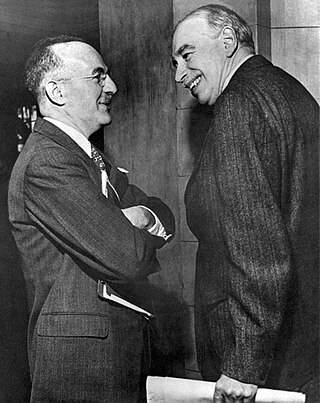
The World Trade Organization (WTO) is an intergovernmental organization which regulates international trade. The WTO officially commenced on 1 January 1995 under the Marrakesh Agreement, signed by 123 nations on 15 April 1994, replacing the General Agreement on Tariffs and Trade (GATT), which commenced in 1948. The WTO deals with regulation of trade between participating countries by providing a framework for negotiating trade agreements and a dispute resolution process aimed at enforcing participants' adherence to WTO agreements, which is signed by representatives of member governments and ratified by their parliaments. Most of the issues that the WTO focuses on derive from previous trade negotiations, especially from the Uruguay Round (1986–1994).
Peter van den Bossche is a professor of international economic law at the University of Bern. In 2018 he was elected president of the Society of International Economic Law (SIEL). He served as a judge on the Appellate Body of the World Trade Organization (WTO) from 2009-2017, following nomination by the European Union and appointment and re-appointment by the Member states of the World Trade Organization. In December 2013 his appointment was renewed. With the end of his formal appointment at the end of 2017, US-driven delays in appointing his replacement alongside US blocking of other key WTO vacancies has meant a growing crisis for the WTO-based multilateral trading system. The election of van den Bossche as SIEL president is considered by some a sign of both defiance to economic nationalism and support for the rules-based multilateral system.
